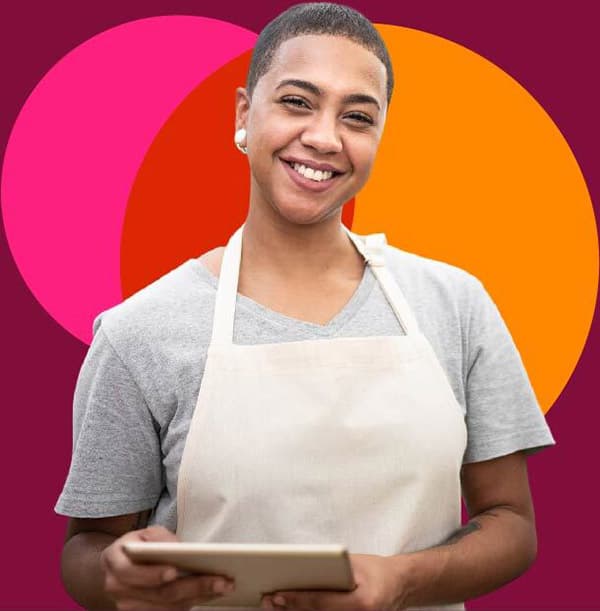It’s hard to remember a time before online shopping was a cultural default.
The more seasoned professionals among us undoubtedly recall the era when nobody faced the “should I buy it online or in person?” quandary, but those days are long behind us. 24/7 availability, endless variety, easy price comparisons, and other efficiencies have all increased online shopping’s potent lure. It may not be quite the same as an in-store experience, but it’s so easy—and who doesn’t love making purchases from the warm, creature-comfort embrace of your sofa?
Actually, it turns out that consumers report plenty of reasons why physically shopping is preferable—sometimes. UK-based KMPG surveyed more than 18,000 shoppers in 51 countries and found that people have well-defined reasons for choosing brick-and-mortar experiences over online purchasing, including:
Shopping in brick-and-mortar stores can be about more than merely meeting physical needs for merchandise. It can also be a way to meet people’s emotional needs for feelings of privacy, certainty, and mastery over their choices. It’s not far-fetched to conclude the potential exists for brick-and-mortar retailers to meet other emotional needs—for excitement, a sense of community, and intellectual growth, to name a few—and develop serious customer loyalty in the process.
Compelling brick-and-mortar stores are spaces that make customers “fall in love” and want to keep coming back. Here are a few ways that retailers are winning shoppers’ hearts and minds by offering experiences that go beyond the transaction.
How: Any brick-and-mortar store can satisfy customers’ need to touch, feel, and try products before purchase; exceptional spaces will do all of those things while providing an experience that makes customers feel like part of the brand, rather than just a consumer of it.
For example: The Nike store in New York City’s Soho focuses on immersive opportunities to feel like a star while trying out new shoes. Shoppers can lace up their sneakers and test them like a star athlete on the store’s basketball court, run virtual trails through Central Park on in-house treadmills, or consult with expert trainers and fitters to pick just the right gear.
For immersion in a different kind of athletic culture, skaters and streetwear aficionados can drop into the House of Vans in eight locations across four continents (and that isn’t counting pop-up locations). House of Vans bills itself as the “home to the creativity that moves us,” and offers ramps and bowls for skating plus art installations, workshops, and concert stages—all designed to immerse visitors in a multidimensional counter culture brand experience held together by the thread of its core product.
How: Offering educational and exciting in-store events allows retailers to demonstrate added value for their customers—and expand the way shoppers think about their brand.
For example: Kitchenware stores and high-end grocers frequently offer skill-building classes, tasting nights, and even book signings with celebrity chefs as a way to connect with their customers. Retailers can also harness an icon’s star power to build excitement for a location or initiative. Serena Williams was the guest of honor at a bustling Neighborhood Goods event, for example, and Levis teamed up with Hello Kitty for a product launch and in-store appearances.
How: The word “personalization” gets thrown around a lot today, so let’s look at it as a sliding scale. On one end of the scale is a marketing email that shows up with your %FIRSTNAME% in the subject line—technically personalized, but just barely. On the other end is a truly customer-centric experience that allows every shopper to feel like your store and/or product exists just for them.
For example: Cosmetic darling Lush is one of the first retailers to spring to mind as an example of high-touch customer service for all (and has invested in improving internal communications to help deliver it). A moment of eye contact with an associate is all that’s required to solicit enough advice, product demonstrations, samples, and personalized recommendations to make anyone feel like royalty. Taking personalized cosmetics experiences one step further, Bite Beauty’s Lip Lab offers shoppers the chance to create one-of-a-kind lipsticks under the careful tutelage of in-house “color artists.” Both examples prove that small indulgences can be the basis of luxurious, personalized experiences.
How: Where appropriate, retailers can supplement their primary offerings and services with thoughtful bonus services that encourage a sense of well-being (and brand loyalty) for customers.
For example: Several retailers and service providers—including grocery stores in the Kroger family, IKEA, and some fitness studios—offer free, short-term child care for parents while they are on-site.
The examples above illustrate how brick-and-mortar locations can help forge a powerful connection between a brand and its customers, delivering an emotional experience that resonates across channels. It’s an approach that can work at any scale, from a single location to a global presence—as long as store employees are properly aligned with organizational strategy.
Communication is the key to making sure every retail associate understands their individual role in achieving their brand’s larger strategy. Find out how Retail Zipline can help share the information your employees need, for an in-store experience that will make your customers swoon. Request a demo today.
Recent Posts
Company News
Zippy is Officially Here!
Company News
Your ultimate fantasy retail team: Zipline, Legion, RetailNext
Company News
Meet the Retail Rockstars at NRF 2025: Learn, Network, and Get Inspired
Company News
Lighting Up Times Square: A Love Letter to Store Employees
Company News
Zipline Named a Finalist for the NRF VIP Awards!
Retail Communications
How Visionworks Brought Comms into Focus with Creative Hubs
Retail Communications
How L.L.Bean Made Store Communication Awesome
Retail Communications
🛒 How Grocery Stores Are Winning with Operational Excellence
Retail Communications
How Allbirds Keeps Employee Morale Flying High with Branded Internal Comms
Retail Execution
How Janie and Jack Streamlined Daily Check-Ins with Zipline
Retail Communications
How Uncle Giuseppe’s Boosted Store Execution

June 26, 2024
December 10, 2024
December 10, 2024
November 29, 2024
November 20, 2024